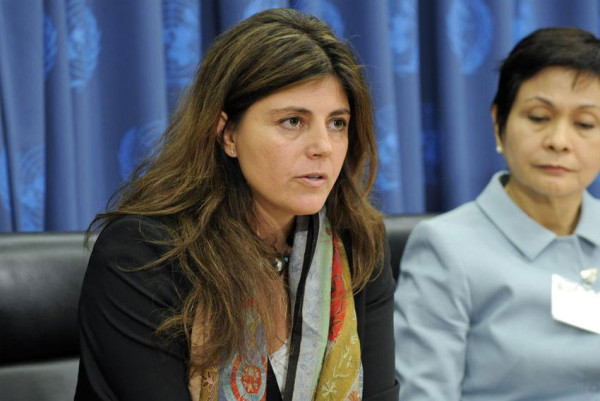Two United Nations independent experts today urged the Hungarian Government to retract a recently passed amendment that criminalizes homelessness, stressing this will result in discrimination against those without shelter.
“Through this amendment, the Hungarian Parliament institutionalizes the criminalization of homelessness and enshrines discrimination against and stigmatization of homeless persons in the Constitution,” said the Special Rapporteur on extreme poverty and human rights, Magdalena Sepúlveda.
On Monday, the Parliament passed an amendment to the Hungarian Fundamental Law that authorizes national and municipal legislation to outlaw sleeping in public spaces.
“Such legislation will have a disproportionate impact on persons living in poverty in general and on homeless persons in particular,” Ms. Sepúlveda said. “This will not only impede the enjoyment of human rights of homeless persons, but will also promote prejudice towards people living in poverty and homeless persons for generations to come.”
According to the Hungarian Government, there are currently not enough shelters in the capital to service the existing homeless community. The Special Rapporteur on adequate housing, Raquel Rolnik, warned that outlawing sleeping in public spaces when there are limited housing solutions for homeless people and low-income households is contrary to Hungary’s international human rights obligations of equality and non-discrimination.
Ms. Rolnik noted that Hungary does not have a national housing strategy or a long-term plan for the almost 30,000 homeless persons living in the country.
“Although I welcome the additional amendments to the Constitution which recognize the right to adequate housing and a commitment to provide access to housing for every homeless person, the full realization of the right to adequate housing is far from a reality in Hungary.”
The two experts also expressed concern about the amendment process being rushed, leaving no time for public consultation.
In addition, they noted that the amendment aims to circumvent a decision taken by the Hungarian Constitutional Court in November, which had annulled previous legislation that criminalized living in public spaces. The annulment had been made on the grounds that the legislation went against the Fundamental Law’s requirements to protect the right to human dignity and property.
Ms. Sepúlveda recalled that the previous legislation reportedly led to more than $125,000 in fines being levied by different municipalities on homeless persons, before the Constitutional Court struck it down.
“It begs the question as to how the poorest and most marginalized in Hungarian society are expected to pay these substantial fines, which only serve to push them deeper into poverty,” she said.
Independent experts, or special rapporteurs, are appointed by the Geneva-based UN Human Rights Council to examine and report back, in an unpaid capacity, on specific human rights themes.










